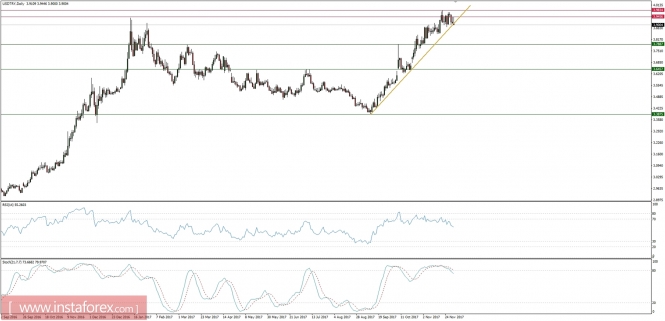CPI inflation in Turkey reached almost 13%, the highest value since February 2004. Although Turkey has been known for debating the national currency for decades, inflation is the reason for such high rates of concern about the stability of the 17th largest economy in the world.
The rapid rise of inflation in recent months is worrying. Only a year ago prices in the Turkish economy grew at a moderate pace of 6-7% per year. This means a doubling of CPI inflation in 12 months. After a slight panic from two weeks ago, this time the financial market very calmly accepted data from Turkey. The dollar exchange rate was stable (almost record-high) to nearly 3.93 lires. The yield on 10-year Turkish bonds even declined by 22 bps to 11.79%. That is one percentage point less than on the previous Tuesday. The problem is the questionable independence of the Turkish central bank from the almost sultanic authority of Tayyip Erdogan. President Erdogan is known (among others) as a supporter of low-interest rates. In the world of economics, he became famous with the controversial thesis that high-interest rates would fuel inflation. There is a rare consensus among economists that in reality, it is exactly the opposite - it is too low-interest rates that stimulate inflation. The main interest rate is still 8.0% and it was never raised in 2017.
Let's now take a look at the USD/TRY technical picture on the daily time frame chart. The market has made a possible Double Top technical formation at the level of 3.9456 - 3 9834 and now is testing the golden trend line support. Any breakout below this trend line will likely lead to the test of the nearest technical support at the level of 3.7887. A clear bearish divergence between the price and the momentum indicator supports the bearish bias.

